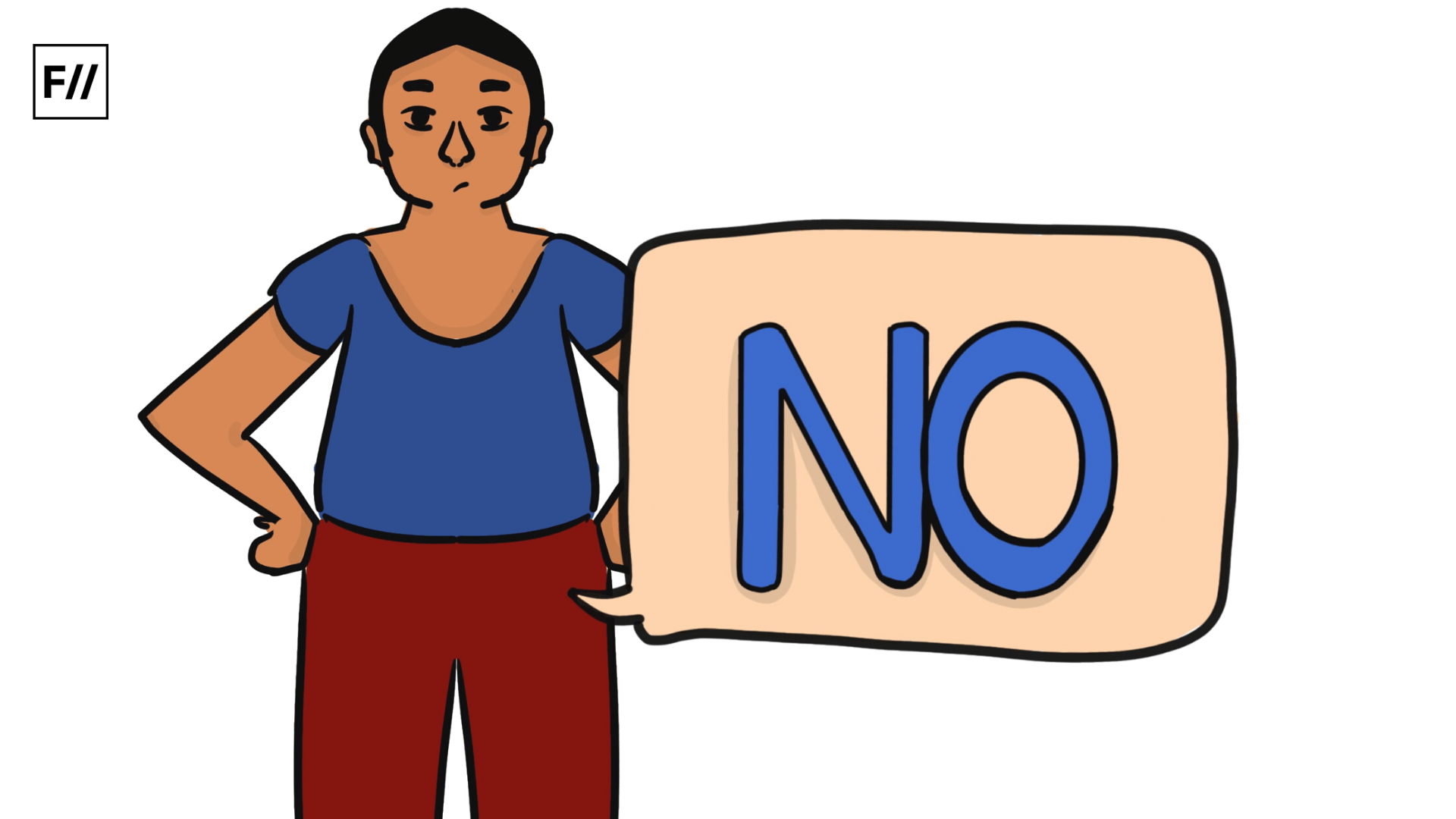Trigger Warning: Mentions Child Abuse and Paedophilia
Twitter erupted into a frenzy, as Twitter does, about a video of the exiled Tibetan leader, the 14th Dalai Lama, asking a pre-teen boy to suck his tongue at a student event in Dharamshala. Opinions flowed and ranged across the spectrum, demanding the Dalai Lama be cancelled on account of being reported of paedophilia and abuse of power. One user reacted, “Still crazy that mainstream media hasn’t cancelled the Dalai lama for molesting a child in public,” as another wrote, “Disgusting! Now, waiting for his followers to justify this”. But the mainstream media covered as well as Tibetans argued the contrary and referred to Chinese as well as white-washed media propaganda and misconstrued cultural relativism as the devil.

The mix of the political, spiritual, colonial, and consensual in this incident and its coverage has been fuelled to fire by rapid and absolutist internet commentary — ’either you agree with me or you are the most morally corrupt person to roam the face of the earth.’ But in this case, it is integral to deconstruct three things—the event, its responses, and the related Tibetan cultural context — to make our own minds about the matter and lead these ideas into a more informed yet crucial discourse on keeping our children and young adults safe and autonomous in their growing years.
The incident-specific context
While the viral video shows the Dalai Lama inviting the boy to suck his tongue, more video footage from the same event shows three key things. Firstly, the boy’s mother is right by his side and he is not alone in the presence of a strange adult (who he has grown worshipping and adulating); secondly, the boy is visibly in awe and requests the Dalai Lama for a hug first, suggesting his desire for the display of physical affection and innocent expression of his admiration. And finally, the post-event interview with the child shows his emphasis on how positive the interaction felt and how he couldn’t resist smiling after the experience because of the good vibe he got inspired with.

This is then compounded by the knowledge that there is a Tibetan tradition going back to the 9th century, wherein people playfully greet one another by asking each other to stick out their tongues and prove that they are not the reincarnation of an unpopular king who had a black tongue. The question to be asked within this event-specific context is — are we, due to the constant exposure, reading too much into a simple display of warmth and innocent love? Let’s hold on to this question for a minute and delve a bit more.
The CCP and Tibetans: Closely looking at the Dalai Lama controversy
While the local context of the event and the boy’s agency, as well as the history of the act, are integral to our understanding and judgement of the same, Tibetans and relevant experts have also been bemoaning the lack of political scrutiny in entrusting the video’s emergence and circulation as a coincidence.
The event took place nearly a month ago and its circulation a couple of weeks later is being attributed to the frigid power dynamic between the Chinese Community Party (CCP) and Tibetans, intent on seeking independence from Chinese control.
The event took place nearly a month ago and its circulation a couple of weeks later is being attributed to the frigid power dynamic between the Chinese Community Party (CCP) and Tibetans, intent on seeking independence from Chinese control. The political power dynamics here are being actively scrutinised through a postcolonial lens: “Incredibly strange that so many who talk and talk about colonialism and apartheid are totally silent about Tibet and defending the Dalai Lama. By strange I mean openly shamelessly hypocritical.”
This isn’t an out-of-the-blue claim, considering the trade-off we make between the conveniences and thrill of the internet in exchange for our agency and data, as seen in the 2016 US Presidential Election controversy, the fast-flourishing IT cells of the ruling BJP on Indian Twitter, and the propaganda machinery for which Chinese authorities pay roughly $7-billion a year.
However, this claim is without significant evidence at this stage as the origins of early discourse around the video have not been traced back to anti-Tibet Chinese propagandists, even though Chinese-backed media has been heavily utilising this moment to defame the spiritual leader who offers political hope to Tibetans. One such account stated, “A ‘simple monk’ will never ask a young boy to ‘suck my tongue’. Only a paedophile commits that crime.”
Also Read: Contextualising Experience, Choice And Consent in Contemporary Feminist Discourse
The question to this discourse is complex: while political and cultural context is crucial, do we allow political and spiritual faith and worship to become a defence unto itself even though the matter at hand is not about invalidating that Chinese propaganda is effective, but about an 87-year-old man with power and capital being in intimate contact with a young child’s body?
Himangi Shekhawat, a Teach for India (TFI) fellow, shared to FII that she is frightened by the thought that her 7 to 9-year-old students are “surrounded by people who do not mean well and they’re fairly tiny”. But training with external experts on consent at TFI and her own approach of direct conversations regarding consent with the children is an assurance, as she explains that “they do know what to do in case anything happens, so there’s a slight peace in knowing they will scream and kick (and they know how and where to hit if needed), and not keep it to themselves.”
Political propaganda is a legitimate threat to social change and the video being shared has often been cut into parts. Yet the discomforting crux of the matter for me is the way that the defence of a spiritual-political leader has in a matter that has very little to do with his political merit and much more to do with the slippery slope regarding the conduct people in influential positions can have over young children and their parents while crossing boundaries of physical contact and mental control.
Children, consent, and conditioning
Himangi Shekhawat, a Teach for India (TFI) fellow, shared with FII that she is frightened by the thought that her 7 to 9-year-old students are “surrounded by people who do not mean well and they’re fairly tiny”. But training with external experts on consent at TFI and her own approach of direct conversations regarding consent with the children is an assurance, as she explains that “they do know what to do in case anything happens, so there’s a slight peace in knowing they will scream and kick (and they know how and where to hit if needed), and not keep it to themselves.”
The children have been trained at an early age by Himangi on respecting consent in every matter—big and small through “using phrases like ‘can I give you a hug’, ‘can I hold your hand’, ‘can I put this flower in your hair’”, which seem like “basic kid things but they really agree to respect that.”

While there is no equivalence as such between documented sexual assault in institutional religions like Christianity, Hinduism, Islam, Jainism, as well as Buddhism, and this globally telecast singular event in public, concerns on children’s consent need deeper attention when political/spiritual leadership is involved. Nearly 90% of child abuse involves a person the child and/or their parents assumed they could trust.
Thus, even if the boy and his mother were present in the event together and felt exhilarated about the interaction, even if this tradition of physical expression and playful affection exists in Tibetan culture, and even if the Dalai Lama has been targeted by the CCP propaganda several times due to his political value—we still must use this instance as a departure point for how we understand what our children think about consent and bodily boundaries.
Also Read: Situating Politics Of Consent & Agency In The Discourse On Marital Rape
Families play a critical role in the development of such understanding. Another person, who wishes to remain anonymous, explained to FII that in her joint family, kids as young as 2 and 3 are taught to differentiate between good and bad touch. They are conditioned to understand who can take them for a bath and change their clothes, and this training came in handy when a supposed trusted adult at a wedding offered a touch deemed ‘bad’ by a young boy. He informed his elder cousin’s sister and she confided in the boy’s father, who called out the act as inappropriate to the abuser. This swift and transparent course of action is an excellent example to inspire the boy’s confidence in the value of his consent and his agency being paramount.

Esha Tewari Pande, a new mother, feels that it’s not just verbal communication of discomfort but also signs of abuse that need to be monitored meticulously by parents. “I have a 10-month-old, but even at this age, I am trying to learn all her sign language, her personality, and her behaviour so I can read her better and be there for her when she needs me,” she says to FII. While conservative households and the culture of shame around sex mean fear for South Asian teenagers and young adults, Esha wants to build a household of intimate confidence and transparency, envisioning, “I also plan to have open communication with my daughter to create a safe and open environment for her to share anything so she feels comfortable sharing any concerns or issues.”
Also Read: ‘I Must Respect Her Space & Choices Without Judgment’: Navigating Consent With A Child
Thus, instead of arguing whether the Dalai Lama deserves to be cancelled or worshipped, we must attempt to put away the blinders of absolute faith as well as public outrage and put things in perspective on a parental, familial, educational, and institutional level for the sake of children who deserve to be protected and respected fiercely against all odds.





There are some good points in here about consent and bodily boundaries. However, two things I disagree with. Sticking out the tongue quickly may be a Tibetan way of saying hello, but asking someone to suck a tongue, and sticking the tongue out for several seconds while pulling a child towards you to do it, is not. They are not equivalent. Also, the boy may have said he felt happy afterwards, but if you watch the video carefully he pulled away twice from the kiss on the lips and did not suck the tongue as requested. Body language and cues say far more than any words can. We should look at that carefully in this incident too. No religious man has a ‘god-given’ right to put their hands or mouths on any child or woman, without fully informed and freely given consent. Am surprised that a feminist publication like this would even try to excuse it.